What to eat before running: expert tips from a sports nutritionist
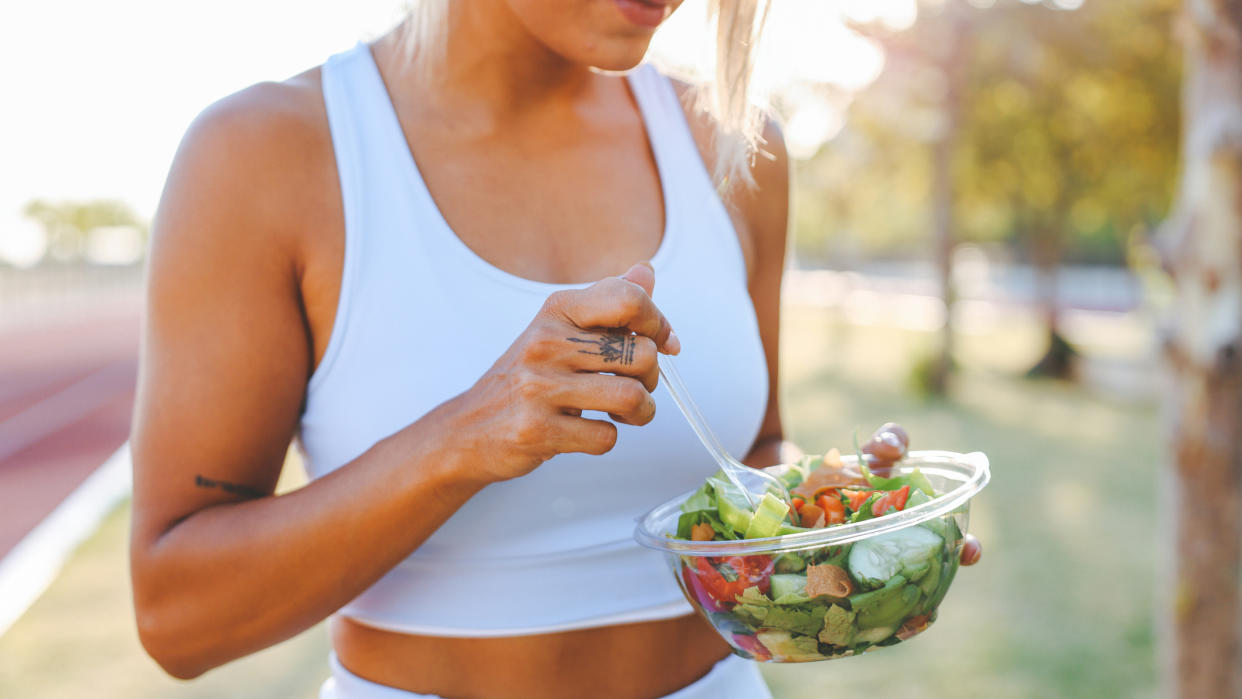
Listen to any trail running podcast about the lead up to, or aftermath of, a big race and it's likely the hosts won't take long to get onto the subject of food. "How was your stomach?" one of them will ask the other. This is because nutrition can make or break a run. It's the difference between a pleasant outing and discomfort. In a race, it can be the difference between the podium and a DNF.
It's also vital when it comes to your training regime. Knowing when to eat around your schedule is key to making it as enjoyable and beneficial an experience as possible, including what to eat after running too. Eat and drink too little and you risk lacking the energy to complete your run at your desired pace, and the whole experience can become a horrible struggle. Of course, you can eat while running, but if you're already that low on energy, you're fighting a losing battle.
Go the other way, and eat and drink too much too soon before your run, and your guts might start protesting before your trail running shoes have covered the first mile. As in every day life, balance and moderation is key when managing your food and drink intake around your running.
We've spoken to expert sports nutritionist and author of The Runner’s Cookbook, Anita Bean, to give us the lowdown and some easy guidelines to follow.
Meet our expert
Today's best deals
Keep hydrated
Hydration is just as important as nutrition on a run
You can check is you're dehydrated by the color of your pee
For runs under 60 minutes, water is ideal
For runs longer than this, the additional carbs offered by a sports drink is ideal
Avoid alcohol in the days leading up to a big run
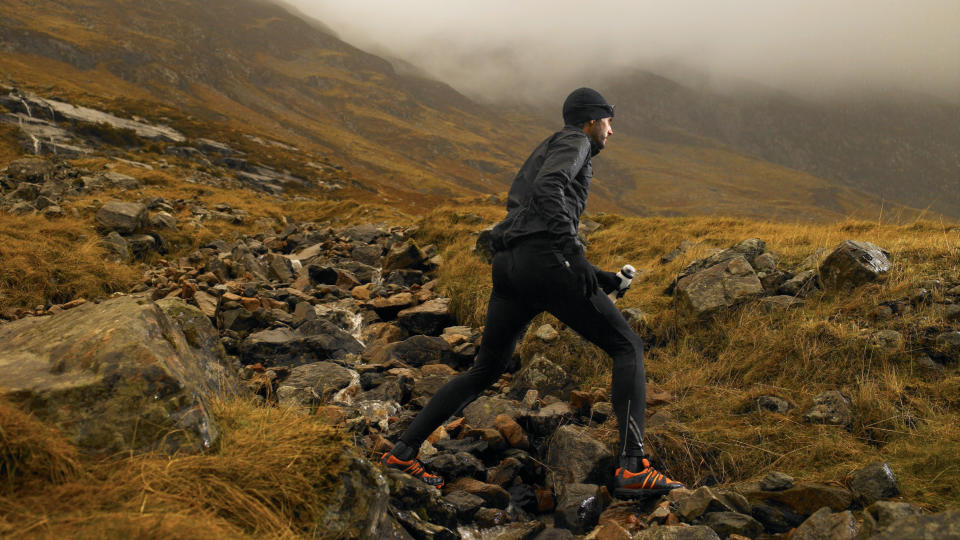
Hydration is an often overlooked part of nutrition, but it’s just as important as what you eat in ensuring you have an energetic and enjoyable run. “Everybody has different water requirements and this varies with your exercise intensity and weather and climate,” says Anita, “but you can tell if you are drinking enough by checking the color of your pee. It should be a pale straw color. If it is a deep yellow color, this is a sign of dehydration so you need to drink more.”
Every day, try to drink regularly, sipping small amounts of water often, rather than waiting until you’re really thirsty and gulping down a whole pint. Anita says, “Your body cannot store water like a camel so if you drink in excess of your needs, then you will simply excrete the excess. In other words, you will need to stop for the loo sooner into your run. Water is the best drink for most runs under 60 minutes, but you may benefit from additional carbs in the form of a sports drink or diluted squash during runs longer than 60 minutes.”
“Limit or, ideally, avoid alcohol for a few days prior to a race or planned long run – particularly the evening before, as it is a diuretic and may exacerbate dehydration during running” advises Anita. So save that beer for a post-race celebration after a pint of water.
Caffeine is a stimulant that many people use very effectively and without ill effects to boost running performance, However Anita advises caution: “Caffeine does not have a performance enhancing effect for everyone (‘non-responders’) and can cause side effects such as trembling, rapid heart beat and insomnia.” So make sure you experiment carefully with caffeine in your training so as not to scupper a big race.
The night before
Eat carbohydrate rich foods the day before a large run
The stored glycogen will power your muscles for longer during exertion
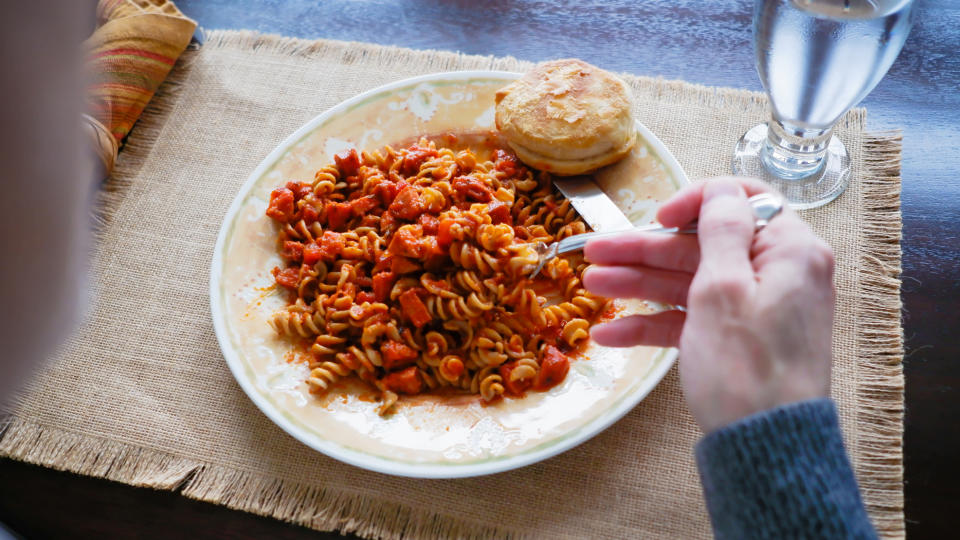
Many runners have well rehearsed eating routines for the evening before a big run or race, and much of it is quite subjective – even superstitious. But, the concept of carbo-loading is very well tried and tested, and it’s backed up by nutritional science.
Anita says, “Eating more carbohydrate rich foods such as pasta, rice or potatoes the day before a large run will allow your body to store more glycogen in your muscles and liver. You can then use this glycogen to power your muscles and sustain your pace for longer before reaching fatigue.” When you run out of glycogen your body is unable to generate energy at the required rate, so that’s when you’re likely to suffer a hunger flat and bonk. So, plenty of carbs is one tip in terms of how not to bonk.
Morning munching
Eat at least two hours before you start running
This gives you body time to partially digest and push out a poo if needed!
A high carb breakfast is ideal, such as oats and bananas
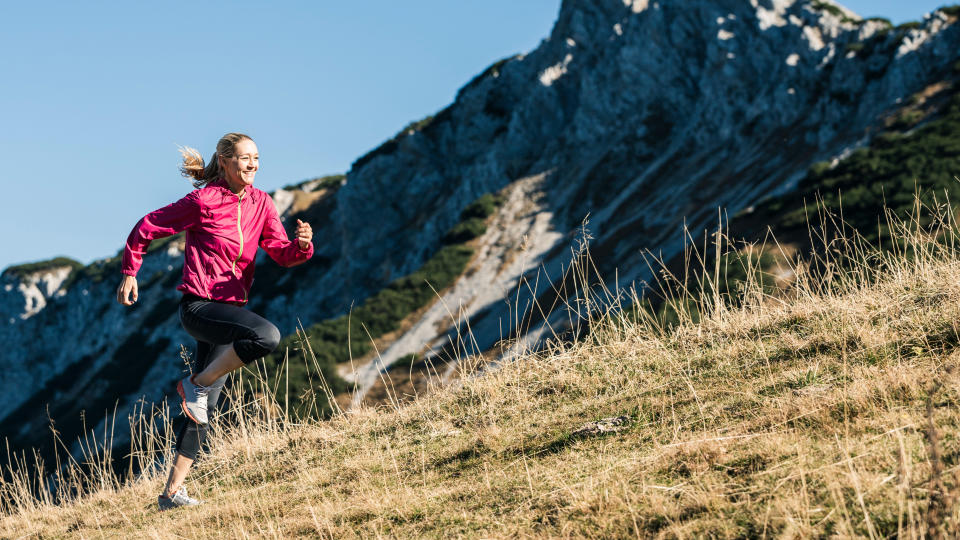
It’s wise to eat at least a couple of hours before you start running, so your body has time to partially digest the food and take some energy from it. That might mean getting up early, but it’s well worth it.
“When you run, your body diverts blood from the digestive system to the working muscles,” explains Anita. “Eat too soon before a run and digestion won’t happen efficiently. The food will simply sit heavy in your stomach, making you feel uncomfortable. Either way, the food is adding nothing to your performance, and you’re just carrying it around.”
Eating some time before you run also gives your body time to push out a poo if it needs to create some space in the digestive system before you get going. Sometimes, if you cram in a meal and head straight out, you can find yourself desperately needing more than a wee once you’ve started moving your body – which can be very stressful and uncomfortable, and potentially embarrassing.
If you find this happening to you despite eating two hours before setting off, Anita advises, “Eat food with less fiber, and try jogging round the block for your first mile or two. That way you can pop back in to use the toilet if necessary, before heading out on a longer run.”
Once again, carbohydrates are your friend when it comes to pre-run breakfasts – particularly those which release energy slowly (as opposed to sugars, which produce bursts of short-lived energy). Anita says, “Oats (porridge) and bananas are ideal – add some honey to sweeten the deal. Wholegrain bread topped with baked beans or peanut butter can be good too, as can less-obvious breakfast bites like couscous, pasta, quinoa, sweet potatoes, pulses and lentils.”
Top up snacks
A small, carb-rich snack around 30 minutes before a run can be beneficial
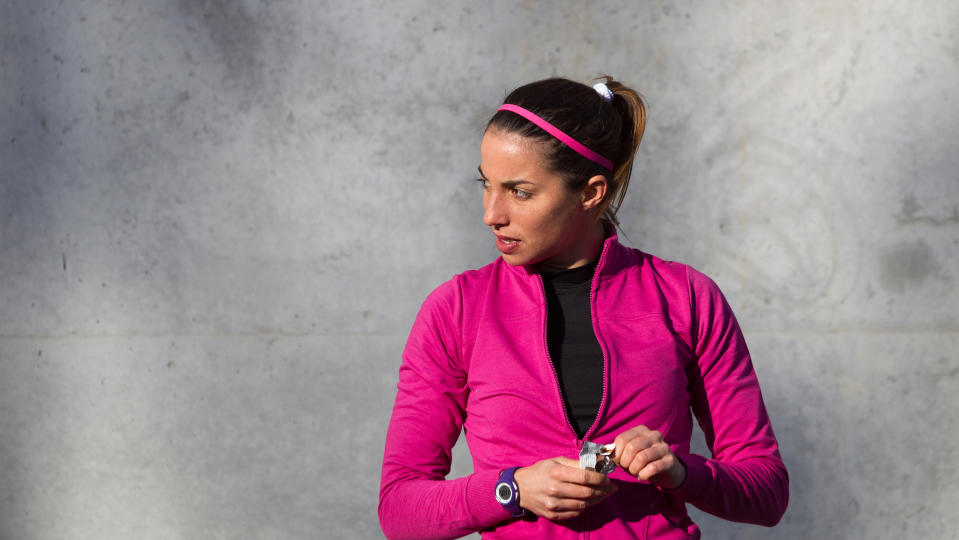
If you are running between meals and you’ve eaten more than a couple of hours previously, a small high-carbohydrate snack 30 minutes before setting off can give you enough energy for your run. Anita says, “Opt for a handful of dried fruit and nuts, a couple of slices of malt loaf, a slice of toast with jam or peanut butter, or a cereal/energy bar.”
For more great pre-run snack, smoothie and meal ideas see Anita Bean’s best-selling book, The Runner’s Cookbook, containing over 100 delicious recipes to fuel your running. It's available to buy now on Amazon US and Amazon UK.
